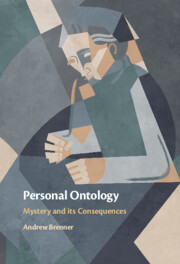Book contents
- Frontmatter
- Contents
- Acknowledgments
- 1 Introduction
- 2 Arguments against Substance Dualism, Part 1
- 3 Arguments against Substance Dualism, Part 2: Pairing Problems
- 4 Arguments for Substance Dualism
- 5 Interlude: What Exactly Is the Difference between Our Being Immaterial Souls and Our Being Composite Physical Objects?
- 6 Nonself, Part 1: Arguments against Our Existence
- 7 Nonself, Part 2: The Self Exists
- 8 Personal Ontology and Life after Death, Part 1: Resurrection, Reincarnation
- 9 Personal Ontology and Life after Death, Part 2: Mind Uploading
- References
- Index
7 - Nonself, Part 2: The Self Exists
Published online by Cambridge University Press: 07 March 2024
- Frontmatter
- Contents
- Acknowledgments
- 1 Introduction
- 2 Arguments against Substance Dualism, Part 1
- 3 Arguments against Substance Dualism, Part 2: Pairing Problems
- 4 Arguments for Substance Dualism
- 5 Interlude: What Exactly Is the Difference between Our Being Immaterial Souls and Our Being Composite Physical Objects?
- 6 Nonself, Part 1: Arguments against Our Existence
- 7 Nonself, Part 2: The Self Exists
- 8 Personal Ontology and Life after Death, Part 1: Resurrection, Reincarnation
- 9 Personal Ontology and Life after Death, Part 2: Mind Uploading
- References
- Index
Summary
This chapter argues that we exist. It first examines whether we can perceive the self. It is concluded that we may be able to perceive the self, but it seems doubtful that we can perceive the self in a way which could establish, on the basis of perception, that the self exists. The chapter then turns to examine whether we can infer that the self exists. This chapter then endorses the following argument. Either something is thinking my thoughts, or some things are thinking my thoughts. If something is thinking my thoughts, then I am that thing, and so I exist. If some things are thinking my thoughts, then I am among those things, and so I exist. An analogous argument could be used to establish that you exist.
Keywords
- Type
- Chapter
- Information
- Personal OntologyMystery and Its Consequences, pp. 143 - 158Publisher: Cambridge University PressPrint publication year: 2024

